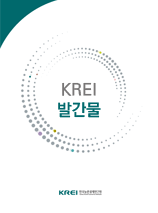
- Performance Management of International Agricultural Development Cooperation Projects in Response to Adoption of Sustainable Development Goals
-

-
○ As the Millennium Development Goals (MDGs) came to an end, the Sustainable Development Goals (SDGs) were adopted as the new direction for development cooperation at the UN Sustainable Development Summit held in September.
○ The SDGs are comprised of 17 goals, 169 targets, and 100 global indicators and national indicators.
- Among the 17 goals, those for the agricultural sector are Goal 1 and Goal 2, which are aimed at sustainable development of agriculture and rural areas by ending poverty and strengthening food security.
○ The UN recommends to utilize indicators based on the system of the relevant country for national monitoring, and to recognize the poor system of collecting statistical data in most partner countries and use inofficial data as well as official ones.
○ Among the SDG indicators, those to be applied to the agricultural sector should be selected by considering the type of an agricultural development cooperation project.
- The SDG indicators should be monitored based on governmental statistics, surveys and research by visits.
○ The performance of agricultural development cooperation projects in Korea is measured by using a result-based approach, but this method is short of consistency due to the use of different indicators for each project. The cost-benefit analysis or the cost-effective analysis is also adopted for the feasibility assessment of a project.
- But this method is irrational because indistinguishable costs and benefits obscure the quantification of the feasibility and a number of phenomena that cannot be defined as an effect may occur depending on the characteristics of a project.
○ It is needed to consider to adopt the theory of change, with which it is possible to start from the specific goals set in the beginning of a project and meet step by step the requirements for accomplishing such goals.
- For achieving fundamental goals, the adoption of the theory of change makes it possible to focus on changes in surrounding conditions, such as infrastructure, and design a program-type project that enables to carry out various projects.
○ In the implementation of the development cooperation for the agricultural sector, SDG indicators need to be actively utilized throughout the entire process from the formation of a project to assessment and collection of feedback, thereby contributing to the accomplishment of the SDGs.
- When a project is created, it is desirable to exclude projects that cannot use SDG indicators.
○ It is crucial to establish an efficient performance management system to improve the effectiveness of international agricultural development cooperation projects led by Korea.
- To this end, it is important to connect the goals of a project with the SDGs, set a method for measuring the degree of contribution to the achievement of the SDGs, and actively participate in the new paradigm of international development cooperation adopted by the UN. -
목차
요약문
○ As the Millennium Development Goals (MDGs) came to an end, the Sustainable Development Goals (SDGs) were adopted as the new direction for development cooperation at the UN Sustainable Development Summit held in September.
○ The SDGs are comprised of 17 goals, 169 targets, and 100 global indicators and national indicators.
- Among the 17 goals, those for the agricultural sector are Goal 1 and Goal 2, which are aimed at sustainable development of agriculture and rural areas by ending poverty and strengthening food security.
○ The UN recommends to utilize indicators based on the system of the relevant country for national monitoring, and to recognize the poor system of collecting statistical data in most partner countries and use inofficial data as well as official ones.
○ Among the SDG indicators, those to be applied to the agricultural sector should be selected by considering the type of an agricultural development cooperation project.
- The SDG indicators should be monitored based on governmental statistics, surveys and research by visits.
○ The performance of agricultural development cooperation projects in Korea is measured by using a result-based approach, but this method is short of consistency due to the use of different indicators for each project. The cost-benefit analysis or the cost-effective analysis is also adopted for the feasibility assessment of a project.
- But this method is irrational because indistinguishable costs and benefits obscure the quantification of the feasibility and a number of phenomena that cannot be defined as an effect may occur depending on the characteristics of a project.
○ It is needed to consider to adopt the theory of change, with which it is possible to start from the specific goals set in the beginning of a project and meet step by step the requirements for accomplishing such goals.
- For achieving fundamental goals, the adoption of the theory of change makes it possible to focus on changes in surrounding conditions, such as infrastructure, and design a program-type project that enables to carry out various projects.
○ In the implementation of the development cooperation for the agricultural sector, SDG indicators need to be actively utilized throughout the entire process from the formation of a project to assessment and collection of feedback, thereby contributing to the accomplishment of the SDGs.
- When a project is created, it is desirable to exclude projects that cannot use SDG indicators.
○ It is crucial to establish an efficient performance management system to improve the effectiveness of international agricultural development cooperation projects led by Korea.
- To this end, it is important to connect the goals of a project with the SDGs, set a method for measuring the degree of contribution to the achievement of the SDGs, and actively participate in the new paradigm of international development cooperation adopted by the UN.저자정보
저자에게 문의
구매안내
KREI의 출판물은 판매 대행사 (정부간행물판매센터)와 아래 서점에서 구입 하실 수 있습니다.
판매대행사
- (주)정부간행물판매센터http://www.gpcbooks.co.kr사이트 바로가기
- 서울특별시 중구태평로 1가 25번지
- TEL 02) 394-0337, 734-6818
- FAX 02) 394-0339
판매서점
판매서점 교보문고 http://www.kyobobook.co.kr/ 영풍문고 http://www.ypbooks.co.kr/ 알라딘 http://www.aladin.co.kr/ 활용도 정보
활용도 정보 상세정보 조회 좋아요 다운로드 스크랩 SNS공유 3524 0 3 0 0 -
- Suggestions to Promote the Hometown Love Donation System
- Gouk, Seungyong
- 2022.11.25
- KREI 이슈리포트
-
- Ten Years of Korea-U.S. FTA: focusing on agri-food trade
- Kim, Kyungphil
- 2022.06.09
- KREI 이슈리포트
-
- Impacts of Ukraine-Russia Conflict on Global Grain Prices
- Kim, Jongjin
- 2022.03.31
- KREI 이슈리포트
-
- The Impacts of the COVID-19 on the Korean Agricultural Market
- Seo, Hong-Seok
- 2020.06.05
- KREI 이슈리포트
-
- 10 Agricultural Policy Issues of Korea in 2019
- Jeong, Minkook
- 2019.01.29
- KREI 이슈리포트
-
- State of Korean and Overseas Markets for Environment-Friendly Agricultural Products and Challenges 2018
- Jeong, Hakkyun; Sung, Jaehoon; Lee, Hyeonjeong
- 2018.09.12
- KREI 이슈리포트
-
- Measures to Establish the Water-Energy-Food Nexus for Agricultural Resource Management
- Sung, Jaehoon; Cho, Wonju; Lee, Hyeonjeong
- 2018.09.05
- KREI 이슈리포트
-
- Changes in the Trade of Agricultural and Livestock Products and Implications after Seven Years from the Enforcement of the Korea-EU FTA
- Song, Woojin; Lee, Hyunkeun; Myeong, Suhwan; Yoo, Juyoung
- 2018.06.29
- KREI 이슈리포트
-
- 10 Agricultural Policy Issues of Korea in 2018
- Kim, Byoungryul
- 2018.01.22
- KREI 이슈리포트
-
- Income Changes by Type of Farm Household and Implications
- Woo, Byungjoon
- 2017.11.30
- KREI 이슈리포트
-
- Income Changes by Type of Farm Household and Implications
- Woo, Byungjoon
- 2017.11.30
- KREI 이슈리포트
-
- 10 Agricultural Policy Issues of Korea in 2019
- Jeong, Minkook
- 2019.01.29
- KREI 이슈리포트
-
- 10 Agricultural Policy Issues of Korea in 2018
- Kim, Byoungryul
- 2018.01.22
- KREI 이슈리포트
-
- Job Creation Potential for the Youth and Challenges in the Agricultural Industry
- Ma, Sangjin
- 2017.01.01
- KREI 이슈리포트
-
- Implementation Plan and Implications of International Development Cooperation Projects for Agriculture in 2017
- Heo, Jang
- 2017.04.28
- KREI 이슈리포트
-
- 2016 Production Status and Market Prospect of Eco-Friendly Agricultural Products at Home and Abroad
- Jeong, Hakkyun; Lee, Hyejin; Kim, Changgil
- 2016.11.30
- KREI 이슈리포트
-
- The Impacts of the COVID-19 on the Korean Agricultural Market
- Seo, Hong-Seok
- 2020.06.05
- KREI 이슈리포트
-
- Global Spread of Saemaul Undong for Rural Development in Developing Countries
- Heo, Jang; Lee, Yoonjung
- 2016.11.30
- KREI 이슈리포트
-
- Goals and Strategies to Reduce Greenhouse Gas Emissions in the Agriculture Sector
- Jeong, Hakkyun; Kim, Changgil
- 2015.11.03
- KREI 이슈리포트
-
- 70 Years' Achievements and New Challenges of Korean Agriculture and Rural Communities
- Song, Miryung; Moon, Hanpil; Kim, Meebok; Seong, Jooin; Lim, Jieun
- 2015.09.15
- KREI 이슈리포트
의견남기기


